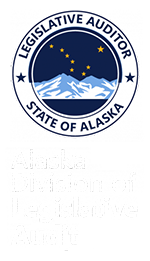| SUMMARY OF: | A Sunset Review on the Department of Education and Early Development (DEED or department) and the Department of Health and Social Services (DHSS), Special Education Service Agency (SESA or agency), June 22, 2012 |
Purpose of the Report
In accordance with Title 24 and Title 44 of the Alaska Statutes (sunset legislation), we have reviewed SESA activities. The purpose of this audit was to determine if there is a demonstrated public need for its continued existence and if it has been operating in an effective manner. As required by AS 44.66.050(a), this report shall be considered by the committee of reference during the legislative oversight process in determining whether SESA should be reestablished. Currently, under AS 44.66.010(a)(6), SESA will terminate on June 30, 2013, and will have one year from that date to conclude its administrative operations.
Report Conclusions
In our opinion, SESA meets a valid public need by: (1) assisting school districts in providing students affected by low incidence disabilities (LID) an education that meets their unique needs; (2) affording opportunities to enhance the capabilities of school district teachers and paraprofessionals; and (3) providing LID and special education resources.
We recommend the legislature extend SESA’s termination date until June 30, 2021.
Findings and Recommendations
Recommendation No. 1
DEED’s special education director and SESA management should collaborate to ensure SESA is operating and funded as intended by the legislature.
DEED management has not actively assessed SESA activities and funding to ensure that the department and the agency are fulfilling legislative intent by providing appropriate services to children affected by LID. DEED management did not fulfill their oversight responsibility and effectively collaborate with SESA.
Recommendation No. 2
SESA’s board president should revise board policies and procedures to improve SESA oversight and accountability.
SESA’s board did not provide adequate oversight of certain SESA activities. Specific areas include:
- Lack of oversight of employee-related contracts.
- Lack of administrative ethics policies.
- Inadequate public notice of board meetings.
- Board work meetings are not publicly noticed or documented.
Auditor’s Comments
SESA’s organizational structure has created confusion regarding the oversight responsibility for funding and monitoring SESA’s LID Outreach Program. The confusion is rooted in SESA’s status as a nonprofit corporation with several oversight entities. Statutes designate DHSS’ Governor’s Council on Disabilities and Special Education (council) as SESA’s governing entity. However, the council does not have budgetary authority over SESA. As a component of special education, SESA’s LID program is funded through DEED as required by statute.
Additionally, SESA’s corporate bylaws designate a separate governing board that is made up of no less than five and no more than seven council members. Bylaws also designate DEED’s special education director as a SESA board member.
The organizational structure has led to confusion and conflicting opinions regarding which entity is responsible for SESA’s budget and operational oversight. The council does not pursue increasing SESA’s LID program funding through the budgetary process because SESA is statutorily funded by DEED. DEED management does not consider itself authorized to monitor or increase funding for SESA’s LID program because SESA reports to the council.
The legislature should consider evaluating statutes relating to SESA to clarify oversight responsibilities.

